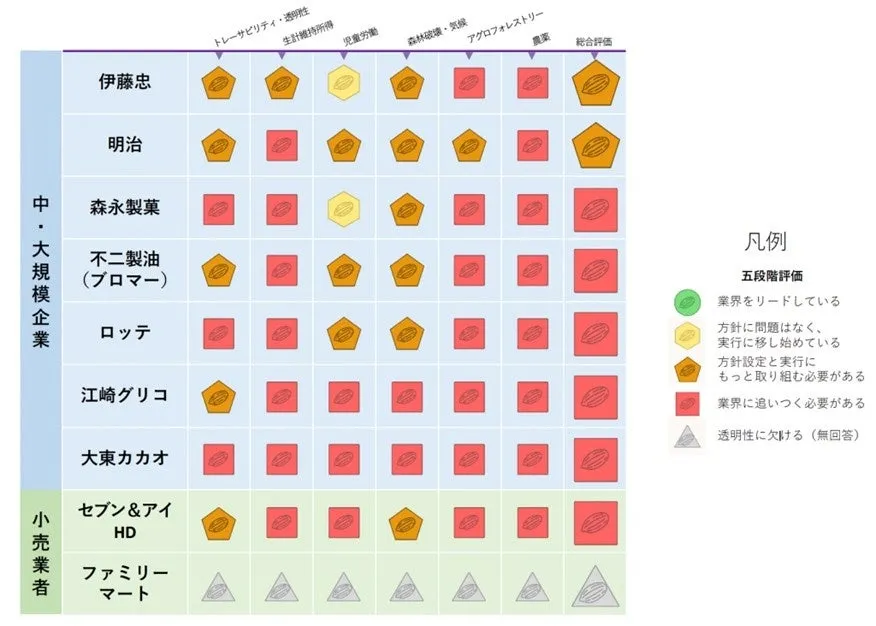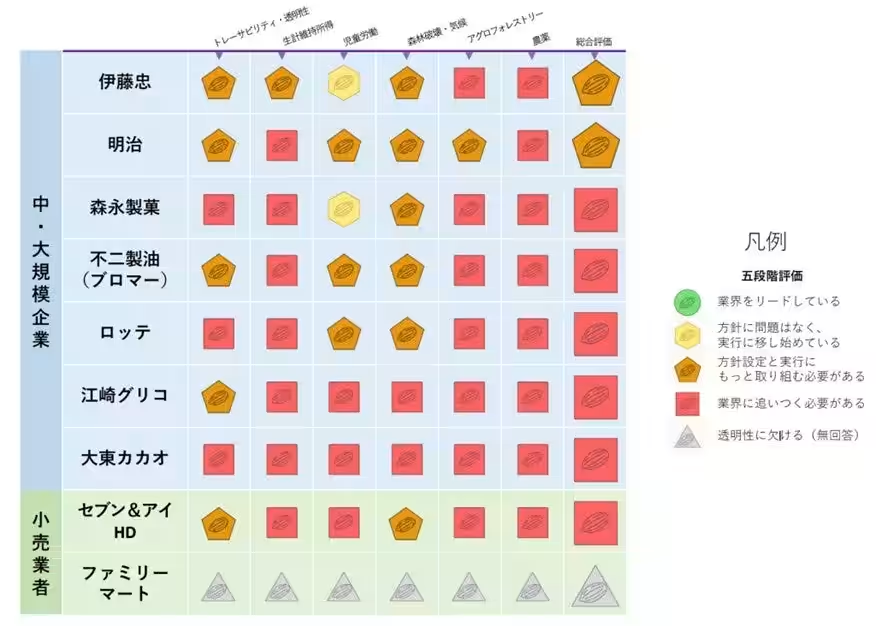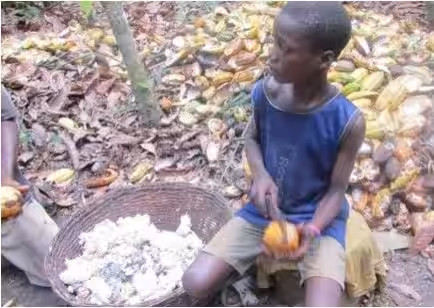

Japan's Chocolate Industry Faces Challenges in Child Labor Transparency Amid Global Evaluations
Child Labor Issues in Japan's Chocolate Industry
The 2025 edition of the 'Chocolate Scorecard,' led by Australian NGO 'Be Slavery Free' in collaboration with various international civil society organizations, has been released, offering a stark evaluation of the chocolate industry, particularly focusing on child labor practices. Since 2009, ACE (Action against Child Exploitation) has been actively fighting against child labor in the cocoa sector, issuing a response to this latest report highlighting the challenges faced by Japanese companies.
Global Context and Japanese Performance
For over 16 years, ACE has been advocating for the elimination of child labor within the cocoa industry. Tokiko Shiraki, the organization's co-founder and vice president, pointed to Japan's generally poor ratings in comparison to global standards, although there was some positive news regarding aspects related to child labor. The report serves as both a spotlight and a call to action for Japanese companies to enhance transparency and accountability within their supply chains.
2025 marks a critical year where the United Nations' Sustainable Development Goal (SDG) 8.7 aims to end all forms of child labor. Shiraki insists that merely superficial improvements will not suffice; instead, authentic partnerships that bridge corporate and stakeholder barriers are necessary to create sustainable and in-depth solutions. ACE stresses the importance of Japan's corporate sector, government, and civil society working cohesively to meet this crucial target.
Understanding the Chocolate Scorecard
The 'Chocolate Scorecard' evaluates sustainability performance among leading chocolate companies globally based on six key criteria: traceability and transparency, sustainable livelihood income, child labor, deforestation and climate impact, agroforestry, and pesticide usage. This year, 81 major chocolate companies were surveyed, yielding results that showed only a small improvement from previous editions.
For Japan specifically, nine companies participated, marking an increase in responses from the previous year. Yet, despite this, Japan's overall ratings remain low, with many Japanese firms being positioned in the lower echelon of the rankings.
Areas of Concern
The report highlighted a concerning lack of effective child labor policies and programs among retail companies, where less than half demonstrated proactive measures in combating child labor, even as progress is evident among larger manufacturers. Furthermore, the average score for Japanese companies was significantly lower than the global average (23% for Japan versus 55% globally), prompting a call for improved performance across all evaluation metrics.
The concerning statistics indicate that while significant strides have been made to raise awareness and promote measures against child labor, the actual implementation of effective solutions remains lacking. Shiraki emphasizes that Japanese businesses must engage more comprehensively with frameworks of accountability and transparency.
Recommendations Moving Forward
To address these challenges, ACE advocates for Japanese companies to deepen their collaboration with NGOs and stakeholders involved in the Chocolate Scorecard initiative. They emphasize the need for Japanese firms to provide clearer data regarding child labor policies and the effectiveness of their implementation efforts.
Moreover, there needs to be a shift from individual supply chain management towards a more holistic, area-based approach. ACE supports systems like the 'Child Labor Free Zone' promoted by the Ghanaian government, which addresses child labor prevention through comprehensive local solutions involving various stakeholders.
In Ghana, from where Japan sources about 70% of its cocoa, approximately 770,000 children are estimated to partake in child labor activities within cocoa production. ACE has worked tirelessly since 2009 to not only assist in eradicating child labor in Ghana but also educate Japanese corporations about ethical procurement methods.
Conclusion
With only two years left until the SDG target year, ACE urges Japan’s chocolate companies and relevant stakeholders to rethink their existing practices urgently. Collaboration, transparency, and a commitment to ethical sourcing are crucial if we are to foresee a future free from child labor in the cocoa industry. As the global awareness around child labor continues to grow, the responsibility lies heavily on the shoulders of Japan's companies to lead by example and cultivate a sustainable and responsible chocolate industry.
For those interested in further exploring this topic or taking part in the movement against child labor in the cocoa industry, ACE remains committed to raising awareness and driving action towards sustainable change.




Topics Consumer Products & Retail)










【About Using Articles】
You can freely use the title and article content by linking to the page where the article is posted.
※ Images cannot be used.
【About Links】
Links are free to use.